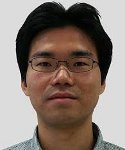TAIC PART 2017
The 12th Workshop on Testing: Academia-Industry Collaboration, Practice and Research Techniques
March 13th, 2017, Tokyo, Japan
Co-located with: ICST 2017
The 12th Workshop on Testing: Academia-Industry Collaboration, Practice and Research Techniques
March 13th, 2017, Tokyo, Japan
Co-located with: ICST 2017
Software testing is the perfect candidate among software engineering activities for the union of academic and industrial minds. The workshop Testing: Academia-Industry Collaboration, Practice and Research Techniques (TAIC PART) is a unique event that provides a stimulating platform to facilitate collaboration between industry and academia on challenging and exciting problems of real-world software testing. The workshop brings together practitioners and academic researchers in a friendly environment with the goal to transfer knowledge, exchange experiences, and enrich the understanding of the opportunities and challenges in the collaboration between the two sides.
TAIC PART 2017 is the twelfth edition in a series of highly successful events. Take a look at previous events and discover what happened at TAIC PART in the past years by following the links below. This year, TAIC PART will be co-located with the IEEE International Conference on Software Testing, Verification and Validation (ICST 2017) in Tokyo, Japan. Please consider submitting a paper and/or registering to attend TAIC PART so that you can be part of a premier software testing conference.
Workshop date & location:
March 13th, 2017, Tokyo, Japan (at Waseda-University Nishiwaseda Campus)
co-located with ICST 2017 (March 13-18, 2017)
Update: Submission deadline extended to December 8!
Download the Call for Papers as PDF / Text
TAIC PART is a workshop that aims to forge collaboration between industry and academia on the challenging and exciting problem of real-world software testing. It is promoted by representatives of both industry and academia, bringing together industrial software engineers and testers with researchers working on theory and practice of software testing. TAIC PART expects submissions relevant to practice and research like evaluation of testing approaches by means of industrial surveys, case studies or experiments, experience reports on the application of scientific approaches in industry, or ideas on how to facilitate the knowledge transfer between industry and academia.
The goals of TAIC PART range from the articulation of research questions in the field of software testing and analysis to practical challenges faced in industry. The common theme is the discussion and advancement of approaches and methods for sustainable collaboration between academia and industry in software testing.
TAIC PART 2017 invites papers on software testing, verification and validation of the following types:
We invite submissions of the following types:
Regular papers will be evaluated with respect to the real-world significance of the described testing experience as well as their ability to forge partnerships and ultimately yield successful solutions. Fast Abstract papers are short papers that describe late breaking results, works in progress or real-world challenges and will be evaluated according to their ability to generate discussion and suggest interesting areas for future research.
Authors should submit a PDF version of their paper through the TAIC PART 2017 paper submission site: https://easychair.org/conferences/?conf=taicpart2017. Papers must be written in English and conform to the two-column IEEE template for conference proceedings. All papers will undergo a rigorous review by at least three members of the program committee. All accepted papers will be part of the ICST joint workshop proceedings published in the IEEE Digital Library.
The best paper presented at TAIC PART 2017 wins an iPad kindly sponsored by Inceptive AB, a Swedish consultancy company in the forefront of pushing state-of-art and academic solutions for requirements engineering, testing and agile ways of working into the marketplace. The best paper will be selected from the submitted regular papers based on the reviews by the program committee.

General Chair

Nat. Inst. of Advanced Industrial Science and Technology (AIST), Japan